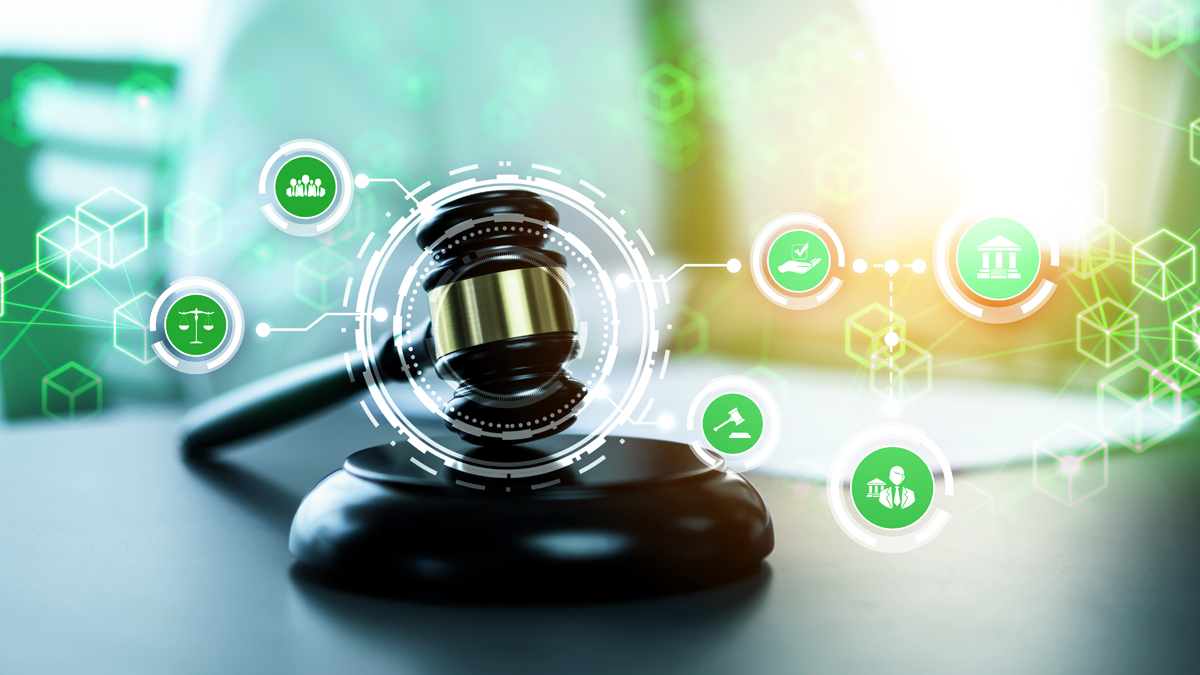- Published on
Transforming Legal Services with Blockchain
- Authors
-
-
- Name
- Michael Jones
-

Blockchain has emerged as a transformational technology in various industries over the last few years. When it comes to legal services, blockchain technologies can support the privacy, security and document management requirements vital to law firms, legal departments, and attorneys.
Here are some ways blockchains can revolutionize legal services and offer a multitude of benefits to enhance efficiency, security and trust in legal operations worldwide.
Smart Contracts
Blockchain technology incorporating smart contracts, for example, can automate the process of creating, executing and managing contracts. Smart contracts, which are self-executing contracts with the terms and conditions directly written into code, can be stored and executed on the blockchain. This hard-coded contract management eliminates the need for intermediaries, reduces the risk of fraud, and ensures transparency.
Smart contracts also have the potential to revolutionize dispute resolution within the legal system. In the event of a disputed agreement or terms, the transparency and auditability of smart contracts enable quick and efficient resolution. Parties involved can rely on the immutable records stored on the blockchain to validate the final state of the contract and ensure fair outcomes.
“The advent of blockchain technology and smart contracts presents a unique opportunity for the legal industry to evolve and adapt to the demands of the digital age,” notes a recent CityLife article. Legal professionals can thus benefit from using blockchain technology that enables the creation, storage, and execution of smart contracts, ensuring secure and tamper-proof agreements, while advancing their client services.
Immutable Document Management
Legal services heavily rely on accurate and trustworthy evidence. Blockchain’s immutability and transparency make it the ideal solution for managing legal documents and data in digital formats. By providing a tamper-proof record of all contract-related activities, blockchain technology can help to ensure that all parties are held accountable for their actions and to their commitments. This can be especially important in cases of complex, multi-party contracts, where it can be difficult to track and manage all of the different activities and obligations.
Blockchain “technology generates a systematic, untampered audit trail of the history of any action taking place in a document, which can be viewed in a history tree, providing a more superior history and audit trail than anything else that currently exists,” explains Accenture. “The digitization of paper-based contracts onto the blockchain holds the potential to revolutionize the way contracts are prepared, transacted, amended, stored and complied with.”
The legal industry rests on maintaining accurate and trustworthy records and evidence. Blockchain’s immutability and transparency make it an ideal technology for document management and evidence preservation for law firms, legal departments, and attorneys.
Digital Identity Verification
In one more example, identity verification is a fundamental aspect of work done in legal services, whether it involves client onboarding, compliance, notarization, or other agreements between strangers. Blockchain technology can streamline these processes by enabling decentralized and secure digital identity verification through blockchain-based identity solutions.
“Blockchain-based identity has the potential to offer increased security, privacy, and efficiency in various industries, including banking, supply chain management, and voting,” notes Jay Speakman in a new Be In Crypto article. “By creating a decentralized and tamper-proof identity application, blockchain can reduce the risk of identity theft and fraud while providing users with more control over their personal data.”
With such technologies, individuals control their personal information via blockchain, granting access to specific details only when they choose to share. This not only enhances privacy and creates a relationship of trust, but as mentioned above, can greatly reduce identity theft and fraud.
ZorroSign For Legal Services
ZorroSign’s data security platform built on blockchain technology is just what your legal team needs to take the privacy and security of your law firm to the next level. To learn more about how ZorroSign supports attorneys, and how blockchains elevate legal services, visit our Legal industry page or contact ZorroSign today!